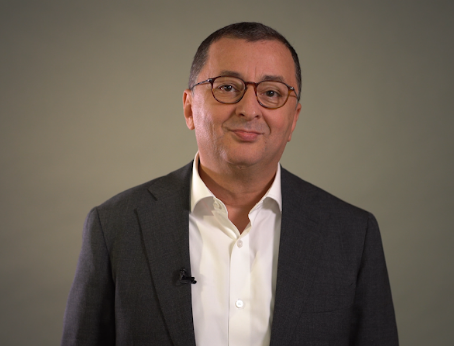
How did the company perform during FY 2022-23?
The company is currently in a recovery phase following the impact of COVID-19. In the critical care market, Celon is gradually depleting the excess inventory that was stocked by the trade in 2021 in anticipation of a third wave that did not materialise.
In the oncology segment, Celon is slowly regaining ground both domestically and within its export activities. It has made notable progress in expanding its geographic footprint, reaching out to a broader set of markets including Latin America, Southeast Asia and parts of the Commonwealth of Independent States (CIS).
What are the key products within the portfolio currently? Which product generated the maximum revenue in FY 2022-23?
Celon's key products include Amphotericin B, Heparin, and Enoxaparin for the critical care division. These products have played a significant role in addressing critical medical needs and have contributed to Celon's success in the market. On the oncology front, leading products include Nab-Paclitaxel, Liposomal Doxorubicin, and Leuprolide Depot. These – thanks to their unique technology – offer significant advantages versus the standard formulations as they either reduce side effects or offer ease of use for both the specialist and the patient.
Going forward, Celon is committed to expanding its offerings in the field of oncology by developing a broad range of products. This includes a strong focus on kinase inhibitors (nibs) and monoclonal antibodies (mAbs). These innovative therapies hold great promise in targeting specific cancer pathways and improving clinical outcomes.
What are the major plans in store for the year? Are you planning new launches, partnerships, or investments?
We have embarked on an aggressive investment programme to augment capacity and meet the ever-increasing demands of regulators it interacts with, both in India and overseas. The first phase of our capex plan will conclude towards August 2023. Capital will continue to be deployed to acquire newer manufacturing technologies to accommodate Celon’s new products.
Celon is also expanding its anti-infectives portfolio with the introduction of Zevtaz (Ceftazidime and Avibactam), which offers a potent combination to address complex infections caused by multidrug-resistant bacteria. Other anti-infectives will be introduced to strengthen this segment of our portfolio.
Your views on listing on a major stock exchange by 2026?
Our policy is certainly not to list our subsidiaries be it Celon Labs (India), Adwia (Egypt), Kelix bio (Malta), or PHI (Morocco). We intend nonetheless to explore the possibility of listing our parent company – Kelix Bio Limited (UK) - on a major stock exchange that would be receptive to an emerging markets’ focused specialty generic business. This decision is part of a strategic evaluation that includes the opportunity of potentially listing on the BSE.
Listing on a major stock exchange offers several benefits, including visibility and access to capital to fund our ambitious acquisition plans. We will continue to communicate with our key stakeholders on our plans as and when appropriate.
Why is the Middle East and North Africa (MENA) region your primary focus?
Our primary focus is clearly and irrevocably emerging markets. Celon has and continues to drive our export ambitions given its presence in Latin America and Southeast Asia. Our other subsidiaries, namely Adwia, PHI and Kelix bio Malta are complementing our geographic coverage with their own products and own network of distributors. They help us expand into East and West Africa and the CIS.
We aspire to expand our presence in the Middle East and Africa region, with a particular focus on the United Arab Emirates, the Kingdom of Saudi Arabia, Algeria, and South Africa. These markets present a significant opportunity for Kelix bio, given its specialty portfolio and the government’s desire to localise manufacturing and drive down their drug bills.
How do you view the Asia Pacific market for your business?
The Asia Pacific markets present undeniable growth opportunities and we clearly recognise this potential. We’ve already established a strong presence in the Philippines and aim to further expand operations into Indonesia and Thailand. These countries offer favourable market conditions and represent strategic entry points for Celon's business expansion.
What is your share in the Indian biopharmaceutical market? How do you plan to enhance your presence in India?
Being a specialty generic manufacturer focused on a few segments, Celon naturally holds a relatively small share of the Indian biopharmaceutical market. However, Kelix Bio, its parent, has a distinct desire to expand its presence in India by acquiring businesses in the oncology and critical care segments.
As mentioned earlier, Celon is actively investing in the upgrading of its manufacturing facilities in Hyderabad. These investments include deploying automation technologies and adopting best manufacturing practices. These initiatives are meant to enhance efficiency, optimise processes and ultimately deliver products of superior quality to patients.
What are the current challenges facing the generics market, and how is Kelix Bio addressing those?
Generic manufacturers will likely face increasing challenges going forward. The most pressing ones are (a) a significant change in the buyers landscape led by government institutions, (b) pricing pressures driven by “un-branding” efforts, (c) and increasing regulatory, quality, and ESG demands.
In response to these challenges, Kelix Bio and Celon have taken the conscious decision to move away from commoditised, low-margin, highly competed primary care products. Rather, Kelix Bio and its subsidiaries have chosen to focus on building a portfolio of defendable, complex injectables and biosimilars. In the next two or three months, Kelix Bio will be announcing a number of product and technology deals that have the potential to transform the growth trajectory of the company.
Dr Manbeena Chawla
(manbeena.chawla@mmactiv.com)




